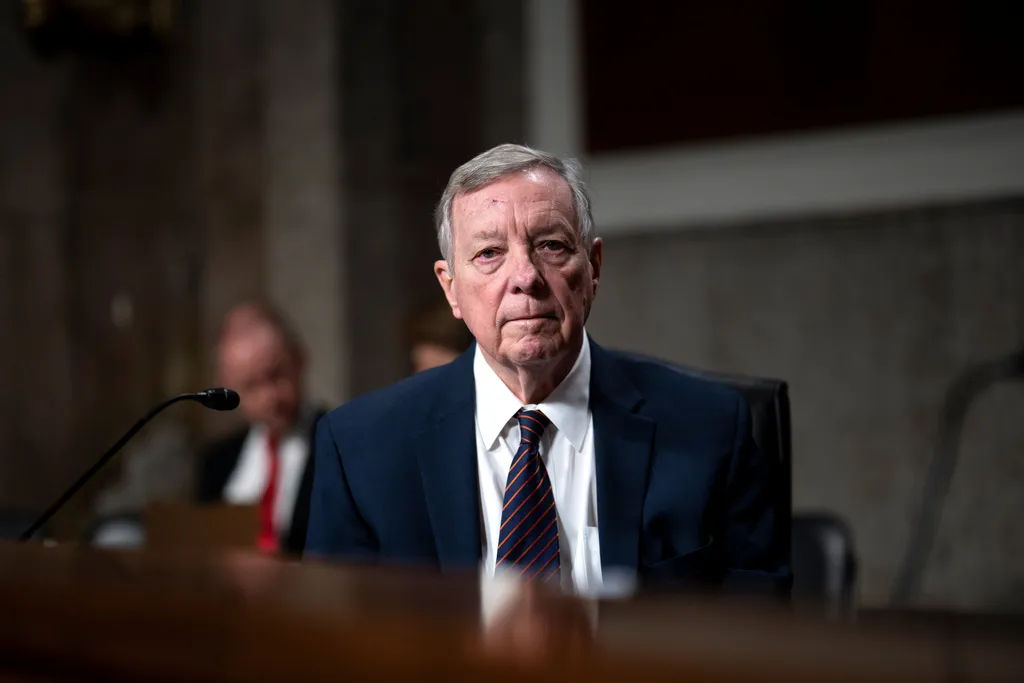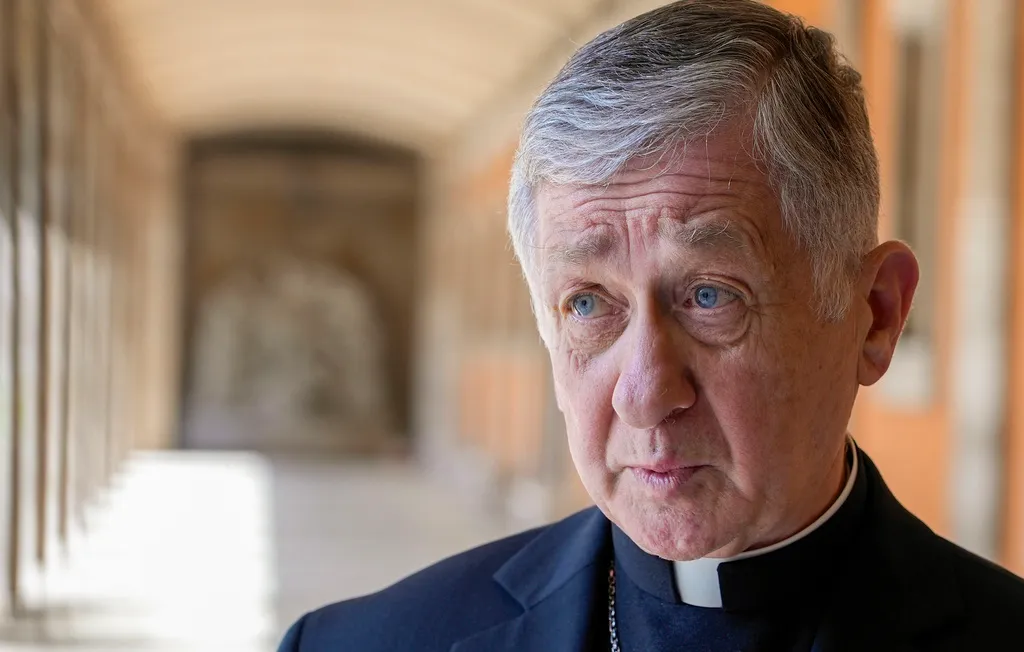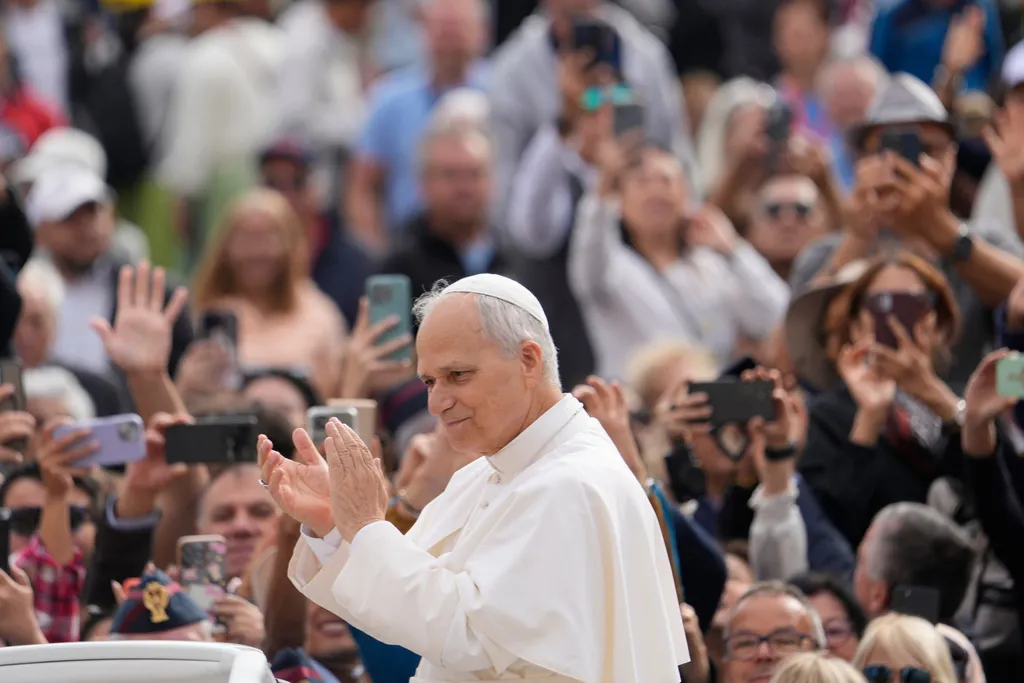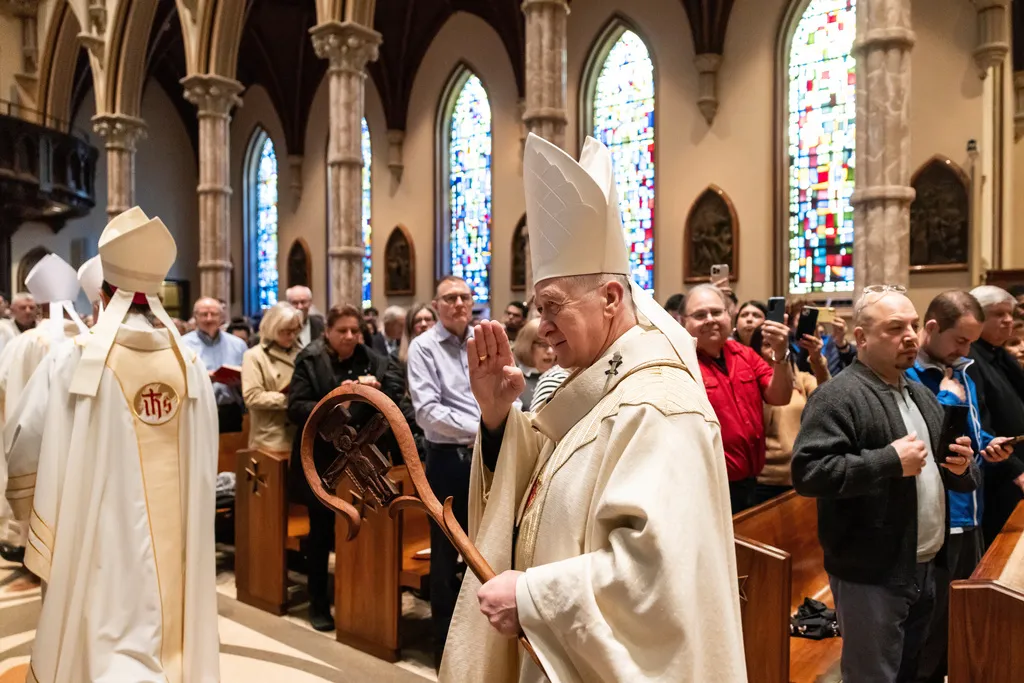


In Focus delivers deeper coverage of the political, cultural, and ideological issues shaping America. Published daily by senior writers and experts, these in-depth pieces go beyond the headlines to give readers the full picture. You can find our full list of In Focus pieces here.
When Cardinal Blase Cupich of Chicago extended an award to veteran Sen. Dick Durbin (D-IL) last month in recognition of his work supporting the dignity of immigrants, the prelate likely did not expect it to become a flashpoint in the United States Catholic Church.
Recommended Stories
- Trump’s Gaza plan is great. There’s just one big problem
- Shutdown fight: Left-wing Democrats take a tea party turn
- Criminalizing incest created Western greatness
But following outcry from U.S. bishops, public backlash, and even a meandering demur from Pope Leo XIV, the award is no longer being bequeathed. Cupich is left lamenting the “divisions within the Catholic community.”
Cupich extended the lifetime achievement award to Durbin last month, planning to formally give the honor on Nov. 3 at a “Keep Hope Alive Immigration Ministry Fundraiser” in the Archdiocese of Chicago.

The archdiocese’s choice to honor Durbin was immediately disturbing to the anti-abortion community. Critics noted that not only is the senator vocal in his support for legalized abortion, but he has also, over the years, embraced the most extreme positions of the abortion-rights camp.
Durbin has received multiple 100-out-of-100 report cards from the pro-choice advocacy group Reproductive Freedom for All and a corresponding “F” grade from the Susan B. Anthony Pro-Life America organization.
Despite this, Cupich thought that Durbin deserved the award due to his efforts to “advance Catholic social teaching” in the areas of “immigration” and “the care of the poor.”
Fellow Illinois prelate Bishop Thomas Paprocki, who as the bishop of Springfield has spiritual authority over Durbin according to Canon Law, expressed shock at the senator’s nomination.
“Given Senator Durbin’s long and consistent record of supporting legal abortion, including opposing legislation to protect children who survive failed abortions, this decision risks causing grave scandal, confusing the faithful about the Church’s unequivocal teaching on the sanctity of human life,” Paprocki said.
Abortion is considered “intrinsically evil” by the Catholic Church and at all times “incompatible with love of God and neighbor.”
“Formal cooperation in an abortion constitutes a grave offense,” the Catechism of the Catholic Church states. “The Church attaches the canonical penalty of excommunication to this crime against human life.”
Durbin’s incongruence with Catholic teachings on abortion was deemed so disordered that he was banned from receiving the sacrament of communion by the Springfield diocese back in 2004, a restriction that still remains.
To drive home his opposition, Paprocki pointed to an agreement published in 2004 from the U.S. Conference of Catholic Bishops that prohibited honors being bestowed on individuals who fail to uphold basic tenets of the church’s moral teachings.

“Catholic institutions should not honor those who act in defiance of our fundamental moral principles,” the conference agreed. “They should not be given awards, honors, or platforms which would suggest support for their actions.”
Paprocki additionally cited the Archdiocese of Chicago’s restrictions on honoring “individuals or organizations whose public position is in opposition to the fundamental moral principles of the Catholic Church.”
A slew of bishops emerged to affirm the Springfield prelate’s arguments and publicly rebuke the idea of awarding Durbin.
“Imagine this: a prominent member of the U.S. Senate has a very strong record on defending the human dignity of life in the womb but also advocates for funding for Border Patrol agents to shoot people trying to enter the country illegally,” wrote Archbishop Salvatore Cordileone of San Francisco.
“Would anyone think it reasonable to honor such a senator for the senator’s pro-life record on abortion? No one who advocates for the direct, intentional killing of innocent human life should be honored,” he added.
Bishop James Conley of the Diocese of Lincoln, Nebraska, wrote that “the senator’s public record has been consistently pro-abortion and he has opposed any protections or safeguards for unborn children in the womb, even to the point of rejecting legislation to protect children who survive failed abortions.”
He continued, “That goes against the fundamental moral principles of the Catholic Church. It seems to me there is still time to reconsider this decision.”
“Dialogue does not require giving awards to Catholic political leaders who disregard the most fundamental of human rights, the right to life of the unborn,” said Archbishop Joseph Naumann, formerly head of the Archdiocese of Kansas City. “Ignoring the policies and recommendations of the Bishops Conference is not synodal and serves to fracture unity.”
Many more gave comments over social media and to Catholic news outlets, including Bishop Michael Olson of Fort Worth, Bishop Carl Kemme of Wichita, Bishop David Ricken of Green Bay, and more.
The situation grew more complicated on Tuesday when a reporter in Rome put a microphone in front of Pope Leo XIV, himself an Illinois native, and asked him to weigh in.
The pontiff, first clarifying that he was “not terribly familiar with the particular case,” went on to state that many Catholic lawmakers fail to fully embrace all aspects of the Catholic Church’s moral teachings.
“I understand the difficulty and the tensions,” the pontiff said. “But I think, as I myself have spoken in the past, it’s important to look at many issues that are related to the teachings of the Church.”

“Someone who says ‘I’m against abortion’ but says ‘I’m in favor of the death penalty’ is not really pro-life,” he continued. “Someone who says that ‘I’m against abortion but I’m in agreement with the inhuman treatment of immigrants who are in the United States,’ I don’t know if that’s pro-life.”
Then, suddenly, the situation solved itself as Durbin decided to officially decline the award on Sept. 30, just hours after the pontiff had spoken.
“I knew there would be pushback from several, but the level of the controversy led me to believe that it’s best that I decline to accept the award,” the senator said.
He expressed appreciation to the pontiff, yet called the media cycle “quite a moment.”
“It is amazing to me,” Durbin said of the pope’s remarks. “I didn’t expect it. I didn’t know it was gonna happen.”
Various bishops, some of whom had weighed in on the matter before Durbin’s recusal, released follow-up statements as well. Some praised the senator for having the good sense to stand down, while others emphasized that such missteps cannot be made again.
“I am grateful to Senator Durbin for declining to receive the award from the Archdiocese of Chicago. He is to be commended for that generous gesture,” said Bishop David Ricken.
“The Church must continue to boldly proclaim the Gospel of Life in its entirety. Our public witness to the Gospel, to convincingly move hearts and minds to conversion, will always require that the Church show the hierarchy and unity of all truths,” said Bishop Michael Burbidge of the Diocese of Arlington.
He added, “A consistent ethic of life requires the faithful proclamation of challenging teachings just as it also requires the avoidance of scandal from actions that would convey ambiguity or indifference to the moral law.”
Differences in opinion between U.S. bishops regarding how to handle lawmakers who diverge from foundational moral principles are nothing new, but the scale and publicity of the quarrel are highly unusual in the modern day.

Kelsey Reinhardt, president of the religious advocacy group CatholicVote, said in a statement provided to the Washington Examiner that “the importance of Senator Durbin declining the award offered by Cardinal Cupich cannot be overstated.”
“Not only was the public outcry enormous — in just a week, 40,000 people messaged the Cardinal’s office from CatholicVote alone — Senator Durbin came to see what the Cardinal did not: Catholics are the backbone of the pro-life movement and they will stand and witness to life at every turn,” Reinhardt said. “And while Pope Leo admitted with his well-known humility that he did not have all the facts, one man did: Bishop Paprocki.
She continued: “As Durbin’s shepherd, Bishop Paprocki has dialogued, discussed, and carefully made the decision to prohibit the senator from receiving Holy Communion, something infinitely more valuable than an achievement award.
Reinhardt said she respects the judgment of Paprocki, “the bishop closest to the facts,” and looks forward to “being at the service of Pope Leo to help him learn about Durbin’s decadeslong pro-abortion, pro-transgender stance.”
Not long after Durbin decided to decline, Cupich released a new statement expressing not only disappointment with the canceled award, but with “divisions within the Catholic community” that he claims continue to “dangerously deepen.”
“While I am saddened by this news, I respect his decision,” Cupich said of Durbin’s refusal of the award. “But I want to make clear that the decision to present him an award was specifically in recognition of his singular contribution to immigration reform and his unwavering support of immigrants, which is so needed in our day.”
The cardinal noted that Catholics in the U.S. are at an “impasse” because they “remain divided along partisan lines, much like all Americans.” He also acknowledged the “tragic reality” that “there are essentially no Catholic public officials who consistently pursue the essential elements of Catholic social teaching because our party system will not permit them to do so.”
“Total condemnation is not the way forward, for it shuts down discussion. But praise and encouragement can open it up by asking their recipients to consider how to extend their good work to other areas and issues,” he wrote. “More broadly, a positive approach can keep alive the hope that it is worth talking to one another — and collaborating with one another — to promote the common good. No one wants to engage with someone who treats them as a thoroughgoing moral threat to the community.”
POPE LEO WEIGHS IN ON ABORTION FOR FIRST TIME, RAISES QUESTION ABOUT ‘PRO-LIFE’ POSITIONS
Open dissent between U.S. bishops has long been considered undesirable due to the perception that public disagreement could be construed as a threat to unity.
Debates and complaints between prelates have historically been handled behind the scenes in hopes of maintaining an image of cohesion despite obviously divergent mindsets.
Paprocki, however, suggested that it is exactly the opposite; that fear of speaking up to enforce established norms could ultimately make the Catholic Church look confused or divided.
“I don’t think I’m violating unity by pointing out a violation of our USCCB statement and policy. It’s the violation of the USCCB statement that is acting contrary to our unity,” the bishop told Catholic news outlet The Pillar.
He added, “I think what we have to do is speak the truth, and when we see something that is wrong taking place, I don’t think that we should be silent or say, ‘Well, I don’t want to say anything because that will violate unity.’”
Leo has remained quiet on the matter since Durbin’s recusal from the award. The pontiff, as the first American pope in history, has done his best to avoid commenting directly on U.S. politics.
Some U.S. bishops claim that the pontiff’s representative to the United States personally intervened through back channels to scrap the award.
The timing of Durbin’s recusal immediately following Leo’s noncommittal response to reporter questions has led some to believe that the pontiff was involved in the decision, but no hard evidence of such an intervention is publicly known.
